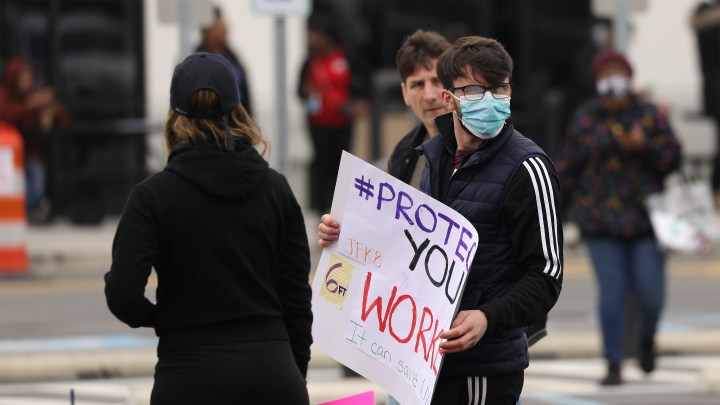
COVID-19 prompts questions about which jobs are classed “hazardous”
COVID-19 prompts questions about which jobs are classed “hazardous”

“Hazard pay” is a squishy term. Many jobs once considered pretty safe now involve a high level of risk because they may expose people to COVID-19. That’s led an increasing number of workers who have to be out and about to demand hazard pay.
Who gets hazard pay and for how long is a question more businesses are going to have to answer as this drags on. Whether work is “hazardous” is pretty much up to individual companies to determine.
“The tendency is for hazard pay to be focused on employees who are exposed to things in the course of their work,” said Jennifer Trivedi, an assistant professor at the University of Delaware’s Disaster Research Center.
But COVID-19 has changed what’s considered hazardous. Jonathan Segal, a partner at the law firm Duane Morris, pointed out that hazard is not confined to health care right now.
“It’s those courageous people that are working in supermarkets and pharmacies,” Segal said. “They are taking risk to keep all of us alive.”
And that can be said for lots of workers these days.
“My role has changed dramatically,” said Monica Moody, a 22-year-old packer at an Amazon warehouse in North Carolina. “I have to be even more careful than I already was being, inside that building.”
Moody is a member of United for Respect, which is calling for better working conditions and pay. Amazon has temporarily added $2 an hour of additional pay for workers. Moody thinks it should be permanent. And that, Trivedi said, is an issue for any company thinking about hazard pay.
“How do you decide that the risk has reduced enough that you no longer need hazard pay?” Trivedi said.
There’s a lot happening in the world. Through it all, Marketplace is here for you.
You rely on Marketplace to break down the world’s events and tell you how it affects you in a fact-based, approachable way. We rely on your financial support to keep making that possible.
Your donation today powers the independent journalism that you rely on. For just $5/month, you can help sustain Marketplace so we can keep reporting on the things that matter to you.












